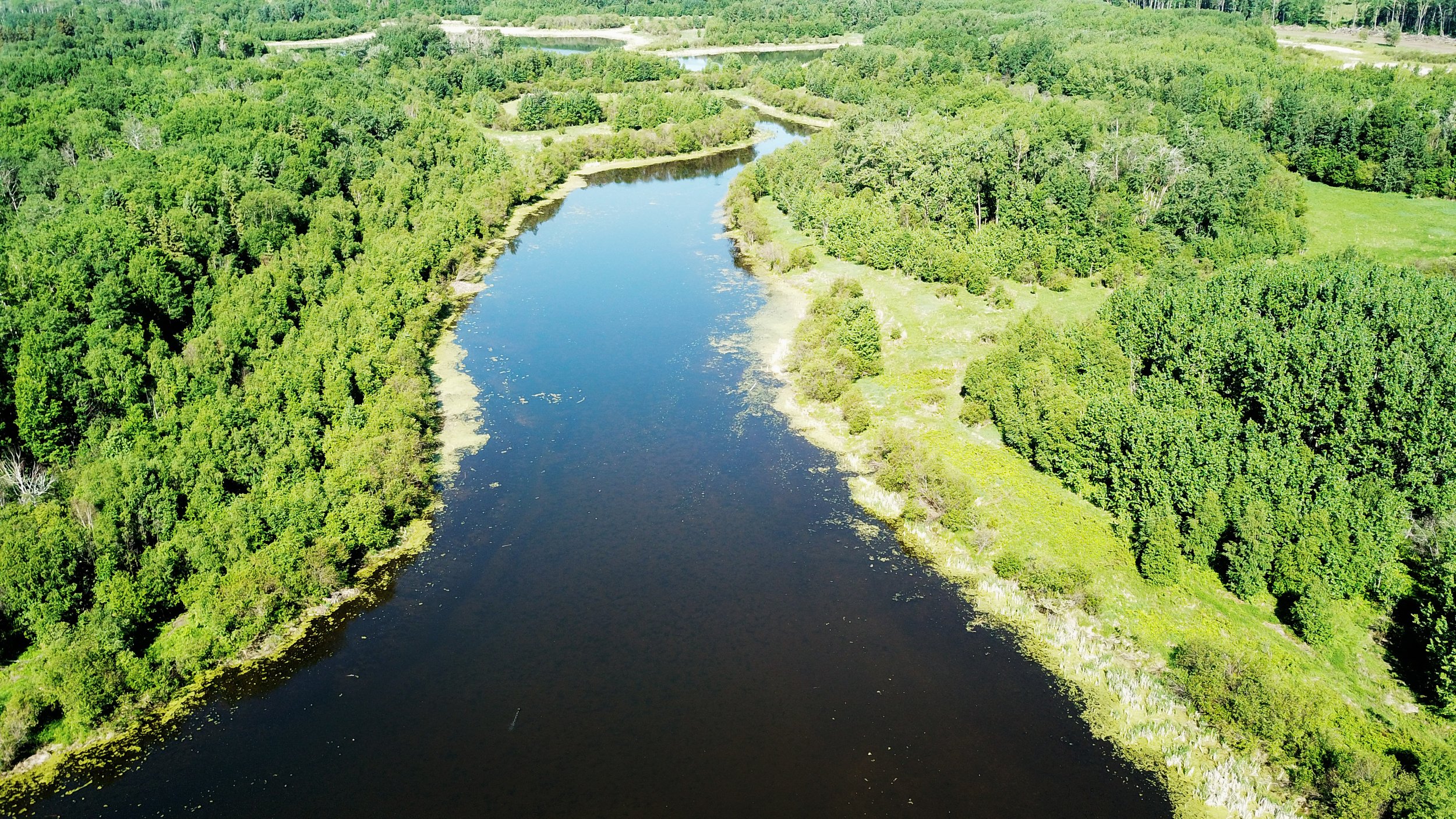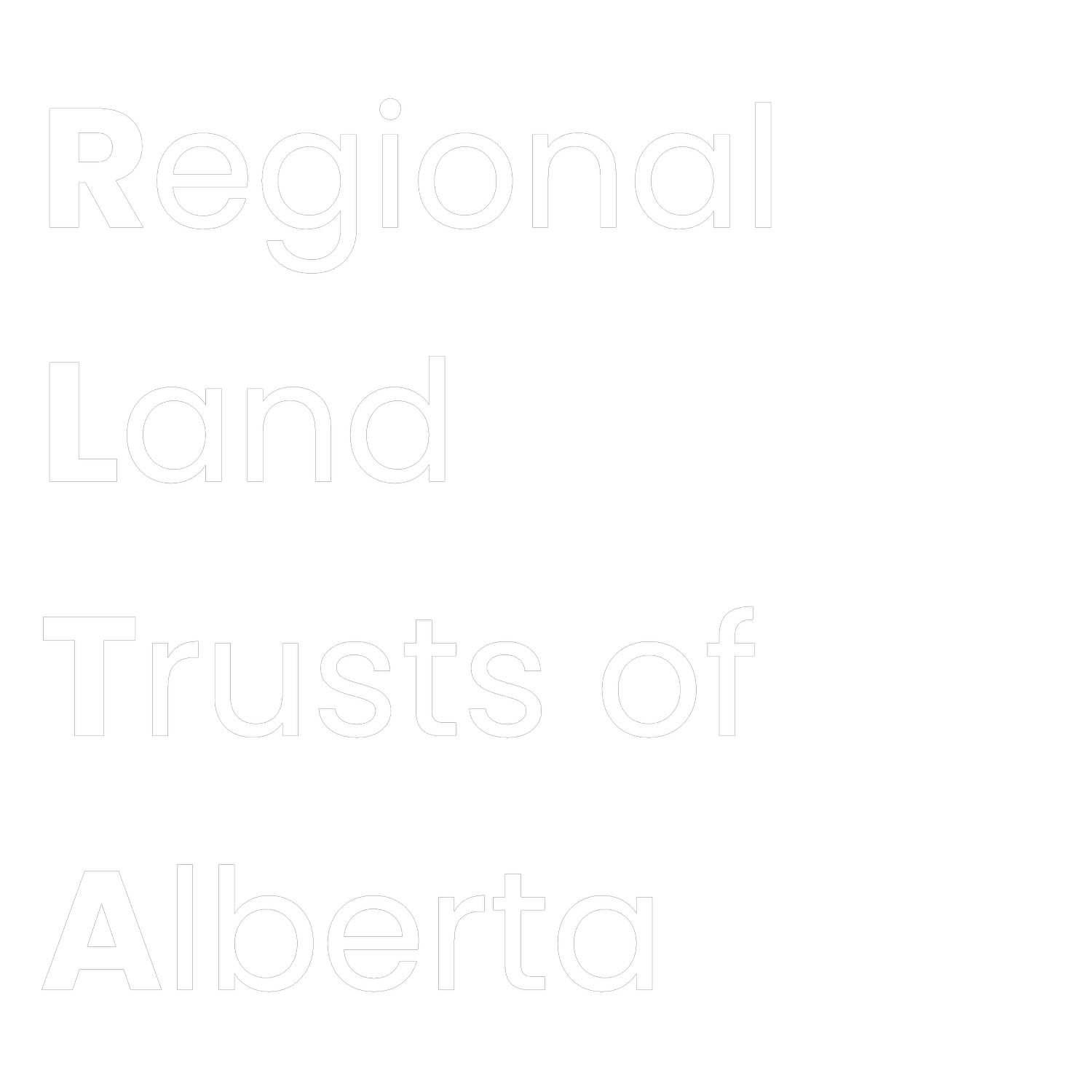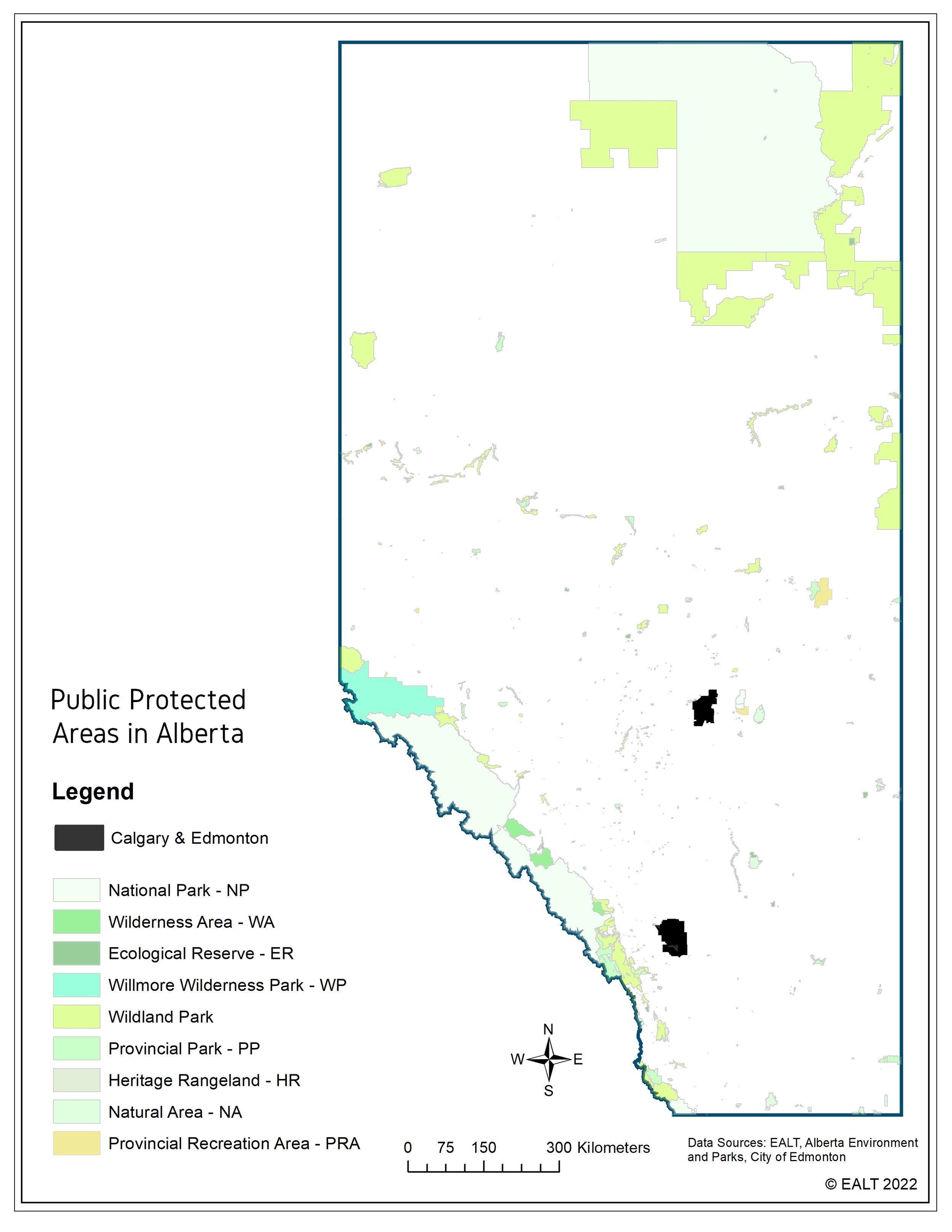
Why Conserve Private Land
While many of Canada’s protected areas are found in national parks, provincial parks, and other publicly protected lands, there are large gaps of areas that are known to be ecologically important, but have no legal protection for its land and wildlife. The map on the left below shows areas in Alberta that have been deemed to be environmentally significant, and the map on the right shows areas that are publicly protected.
Private land conservation offers a unique and effective solution to fill in these gaps and increase the network of conserved areas in a landscape, while engaging local communities and landowners in land and biodiversity conservation.
Private land conservation offers many benefits for nature, landowners, and all Albertans.
Many privately owned lands contain significant or ecologically critical habitat for species, wildlife corridors, and stepping stones to larger protected areas. Private land conservation benefits wildlife by providing habitat at multiple scales for many fish and wildlife species.
Many of our major rivers are Nationally Significant and a good portion of these are predominantly through private land. Land trusts play a significant role in protecting watersheds and land along our rivers, which support the drinking water for millions of Albertans.
Much of Alberta’s intact biodiversity exists on private lands, generally in areas with many competing interests, pressure for development/conversion, and complex land use systems. Private land conservation can conserve nature in these complicated circumstances.
Many landowners want to see the legacy of their good management maintained into the future, seeing their property’s conservation values persist for generations to come. Land trusts help these landowners achieve their conservation goals.
Landowners who donate title or a conservation easement of their ecologically significant land may be eligible for additional tax benefits through the Ecological Gifts Program.
Privately-conserved parcels of land provide benefits to all Albertans, including increased climate resilience, carbon sequestration, improved food security, maintenance of community values and sense of place, opportunities for nature-based recreation, and reduced fragmentation of the agricultural land base.


